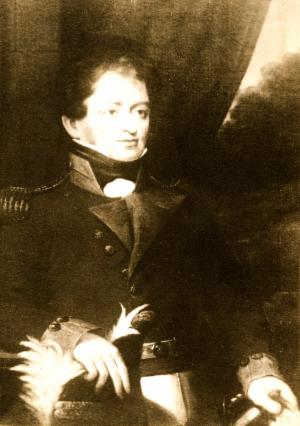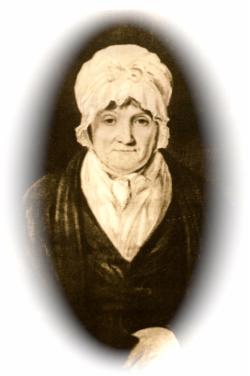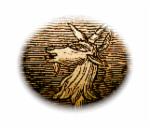
Local People
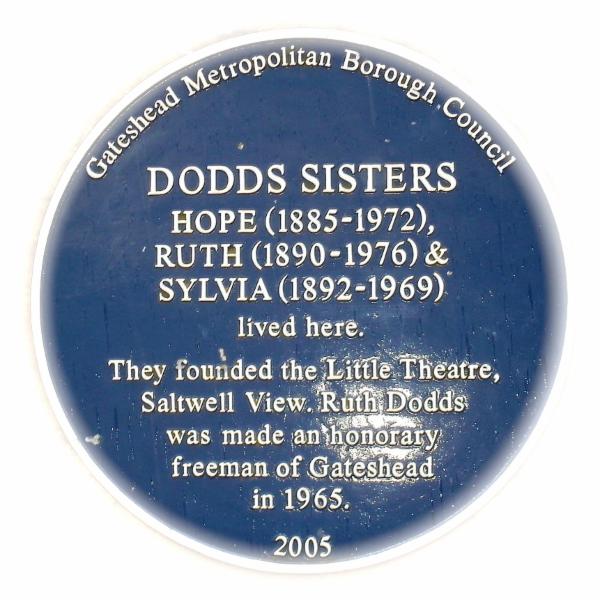
Madeleine Hope Dodds
was the daughter of Edwin and
Emily Bryham Dodds. She had an older sister, Mary Muriel (Molly), two
younger sisters Ruth and Sylvia and one brother, Brian. Hope was
educated at Newnham College, Cambridge before women could obtain
degrees. She never married and lived all her life in the family home,
Home House, Kell's Lane, Low Fell, as did sisters Ruth and Sylvia.
Madeleine Hope Dodds, who died on 13 May 1972 at the age of 87, was the 2nd
daughter of Edwin Dodds and Emily Bryam Dodds (nee Mawson) of Home House, Low
Fell, where she lived for most of her life. Her grandfather, MS Dodds, was
the founder of the printing business called after him on Newcastle
Quayside; her maternal grandfather, John Mawson, of Ashfield, Low Fell, was
Sheriff of Newcastle when he was killed in the explosion on the Town Moor
in 1867.
M. Hope Dodds was educated at Gateshead High School for Girls on the
Windmill Hills. She was a student at Newnham College Cambridge from 1904 to
1906 when she passed with Second Class Honours in the History Tripos.
Degrees were not then given to women at Cambridge, but many years later
were conferred on all who had earned them in the past. She spent an extra
year at Newnham in research and was awarded the Creighton Memorial Prize in
1909. She then worked for some years for the Victoria Country History, with
her college friend, Myra Curtis, who after a distinguished career in the
Civil Service, eventually became Principal of Newnham.
Hope Dodds returned to Gateshead and continued to devote herself to North
Country History. In 1915 the Cambridge University Press published "The
Pilgrimage of Grace and The Exeter Conspiracy" which she wrote in
collaboration with her younger sister, Ruth Dodds. This has recently been
reprinted after more than half a century, during which it has remained the
principal book on this North Country Rebellion and its sequel.
She contributed many papers to historical journals, more especially to
"Archaeologia Aeliana" and to our "Proceedings". She also wrote some brief
biographies for DNB. Her most impressive work was the editing of Volumes
XII to XV of the "Northunberland County History". Much of the medieval
history and genealogical information was her own work, the fruits of the
research of many years. In addition from 1941 to 1946 she was our
librarian. From 1947 she was an Honorary Member of our Society.
Hope Dodds had a delightful sense of humour which sometimes appeared even
in the sober volumes of NCH and still more in her contributions to
historical periodicals. She was a great admirer of Jane Austen and the
Brontes. But her chief love was for the North Country, its beauties, its
people and its varied and fascinating history.
She worked for some years in her father's printing business during the
First World War. She became a Quaker and attended the Newcastle Meeting of
the Society of Friends. Hope Dodds was a pacifist and a Socialist; the
last political action of her life was casting a postal vote in the
municipal election of May 1972, for her sight failed in old age. But she
was not completely cut off from her beloved books as she had learned to
read Braille and this was the great occupation of her last two years.
>From their foundation, Hope Dodds was an active member of the Progressive
Players, Gateshead. She produced plays for them at Westfield Hall in the
early days and made dramatic adaptations of Jane Austen's Emma and Dickens'
Great Expectations which they performed. It was largely due to her
generosity that the Gateshead Little Theatre was built for the Players and
it has become the dramatic centre of a town and district otherwise devoid
of live drama. She attended all the Players' performances as long as her
health permitted.
In spite of her love of drama, both amateur and professional, she never
herself came into the limelight, for her nature was quiet and retiring. But
all who did know her appreciated her gaiety, kindness and wisdom and her
generosity of spirit. She lived a full life.
Ruth Dodds.
Hope Dodds is featured because much of her local history is on this website
John Barras
The story of John Barras is wrapped up with Gateshead Breweries which is covered on the sister site to this one
Briefly, in 1770 John Barras, a wealthy home brewer of Whickham, established a Brewery in Gateshead.
In
1884 John Barras jnr took over The Tyne Brewery and in 1890, with John
Barras as the major player, Newcastle Breweries was established...and
for a while Newcastle Brown Ale was brewed in Gateshead, where so called
Newcastle Exhibition was born... a full circle.
There is now a pub chain which carries the name of John Barras
William Clarke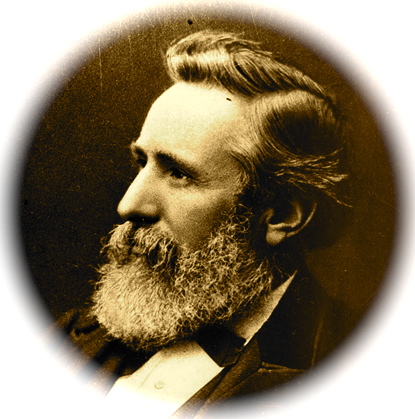
As a young man, William was employed at Longridge's Iron Works in
Bedlington, later moving to Armstrong, Mitchell and Co in Newcastle in
1860. In 1864, he set up a small engineering business on the South Shore
in the same area as Hawks and Abbots iron foundries. Within a year, he
had taken a partner, Abel Chapman (see below) and later the two were joined by
Charles Parsons. The firm relocated to St James' Road and within 20
years, was world famous. William Clarke played an active part in the
affairs of Gateshead and was a JP and a Council member for some years as
well as an organiser for the local Volunteer Corps, treasurer of the
Children's Hospital and a supporter of the Northern Counties Institute
for the Deaf. He was also a staunch Methodist and the first Treasurer of
the 'New Durham Road Wesleyan Mission Committee' in 1885. He also
introduced a number of reading rooms and science classes for Gateshead
people. It was said of William that he seldom 'strayed from the banks of
the Tyne'. He ![]() died unexpectedly at the age of 59. He lived at the
Hermitage from about 1874, a mansion with 20 rooms.
died unexpectedly at the age of 59. He lived at the
Hermitage from about 1874, a mansion with 20 rooms.
Abel Henry Chapman
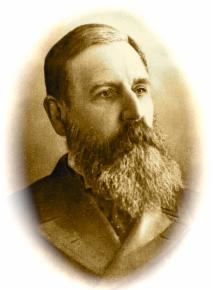
Abel Henry Chapman was born on the 10th of May, 1836 at Wanstead, Essex,
the fourth son of Jonathan Chapman, a Quaker, and his wife Agatha. His father’s
profession at the time of Abel’s baptism was stated simply as “Gentleman”.
Captain Chapman retired from the 19th Hussars on the 7th of January, 1874. Upon
his retirement, Abel joined an engineeringand manufacturing firm owned by William
Clarke in Gateshead. At the time, the company had approximately 200 employees.
Chapman became a partner with Clarke in 1875 and the name of the firm was changed
to Clarke, Chapman & Company, Ltd. By1881 the company was employing 500
workers. In 1890 William Clarke died unexpectedly at the age of 59 and Abel
Chapman became the Chairman of the firm. Under his direction, the firm continued to
grow and prosper. Captain Abel Henry Chapman died at at his home Belle Vue, Gateshead on the 24th of May, 1902, at age 66 and was interred at Jesmond Old Cemetery.
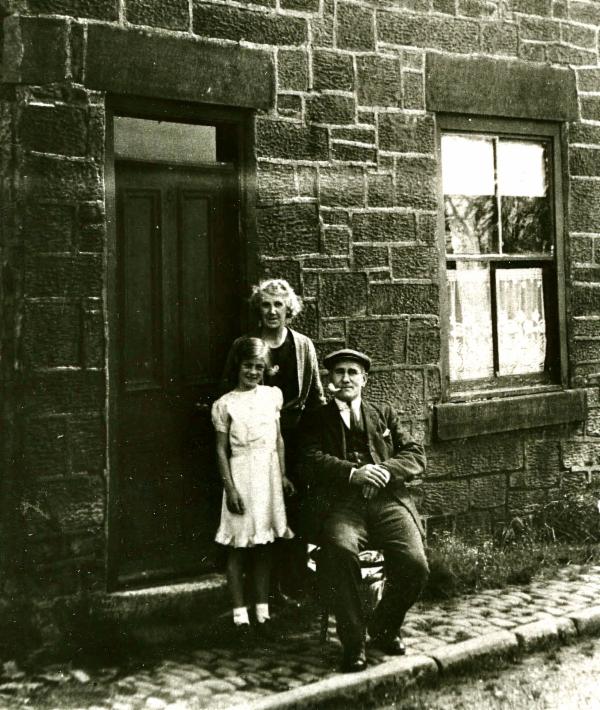
Title: Phil Stephenson, Stone Street, Windy Nook c1937
Photographer: Unknown
Date: C1937
Reference Number: GL007013
Phil Stephenson known locally as Bow Legged
Phil sitting outside his home, 2 Stone Street
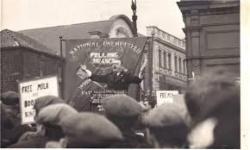
James Ancrum, Communist, National Unemployed
Speaking at The Pant, Victoria Square, Felling
Corona Cinema and Co-op in background
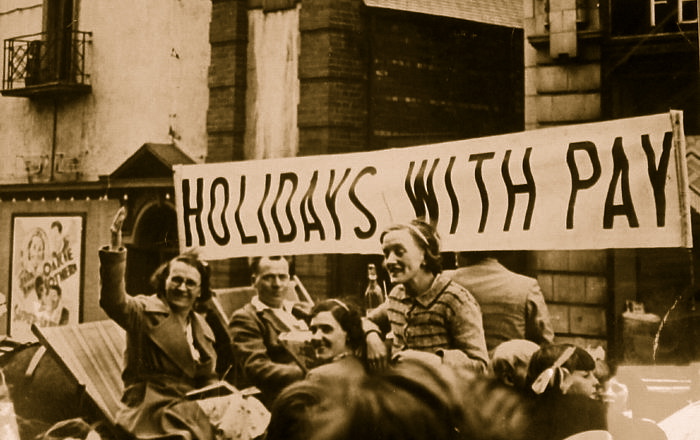
Ellen Wilkinson MP, with Harry Cusack, Labour Party Activist, later secretary to Ernie Furneaugh, in The Felling.
In background is the Corona Cinema and Co-op Store
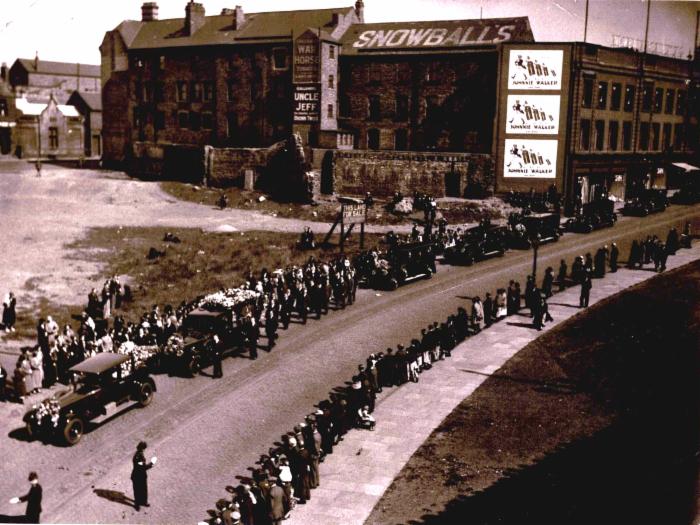
Tot Anderson was the well liked publican owner of the William IV pub on Gateshead High Street. He died in 1937 and the Gateshead Post note: "People lined every inch of the route to St Mary's Church in Gateshead where a service was held" Mr Anderson was buried at Gateshead East Cemetery.
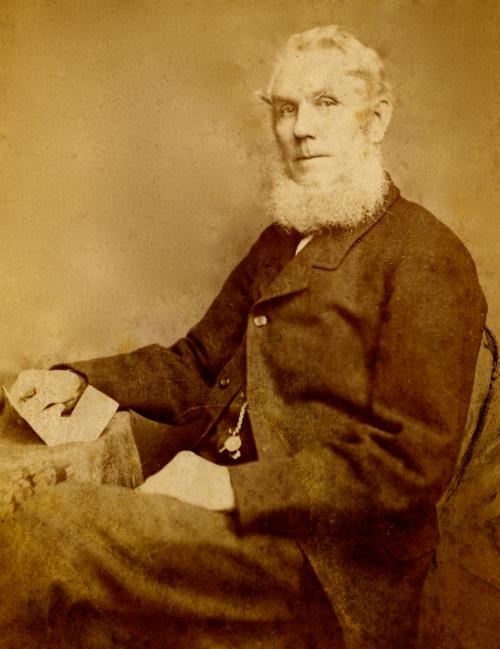
George Brown
Date: Date Unknown
Reference Number: GL003318
George Brown built a number of house in Gateshead including Saltwell Towers
George Hawks
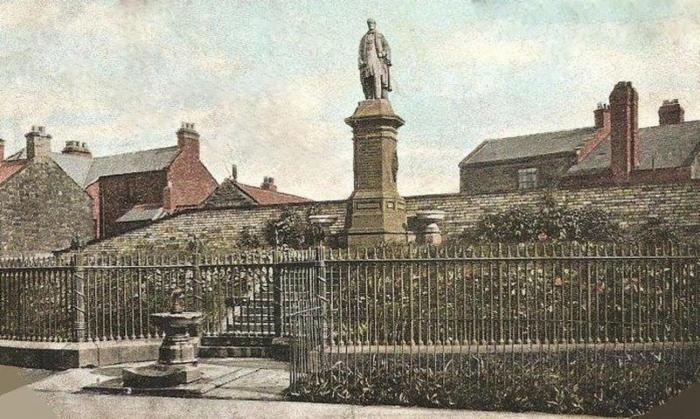
George Hawks was Gateshead’s first mayor in 1836
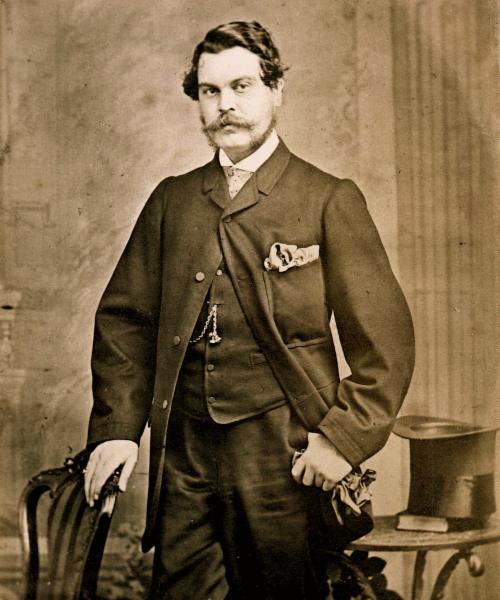
See here for Saltmeadows where his factory was and his workers lived
See Redheugh where he lived
- was Mayor George's uncle.
But who funded St John's Church to get his son the job of Parson and live in the very nice Hawksbury House in Low Fell?
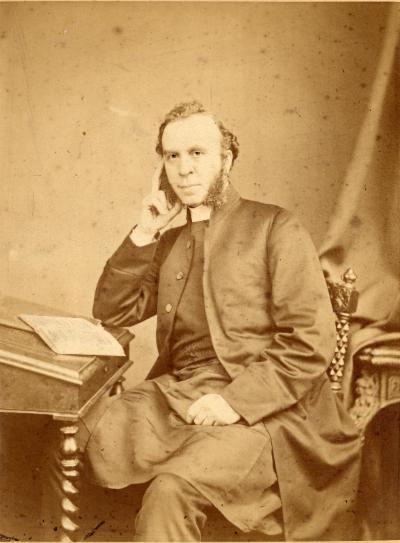
Rev Edward Prest
Date: Date Unknown
Reference Number: GL003347
Edward Prest MA was Canon and Archdeacon of Durham 1863-82. Vicar of St Mary’s Church from 1861-1881. Rector of Ryton 1881-82.
Prest Street was a street in The Teams, named after him
Gateshead Council's website says
"His son Herbert is commemorated in a plaque at St Mary’s ‘ Herbert Prest who fell asleep at Durham School’.
There is a commemoration window at Durham School to, inter alia, Herbert Prest 1860-72. "Fell asleep" must mean "Passed away"
Advertisement

William Clough
William Clough was born at Earsdon and moved to Gateshead when aged about 20. He established a grocery business in Cromwell Street, Deckham, in 1873 and later moved his shop to 418 High Street.
He was first elected a Councillor in 1885, then an Alderman in 1900. He became a Justice of the Peace in 1905. He was Mayor in 1897and again from 1919 -1921 (two consecutive terms). He was associated with the Wesleyan Church at Mount Pleasant and in 1928, he was elected an Honorary freeman of Gateshead.
Geordie Ridley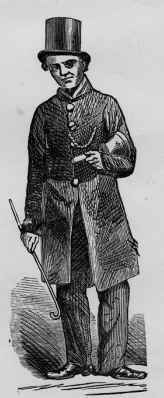
George "Geordie" Ridley (1835 – 1864) was a Tyneside concert hall song writer and performer in the middle of the 19th century. His most famous song is "Blaydon Races". He was a contemporary of Edward Corvan He is Tyneside's most famous songwriter. See Wiki
Thomas Hepburn,
Pelton born Social Reformer in the Coal Mining Industry has been included on the main Pits page
F. J. Finn
John Hodgson
James Leathart
Robert Stirling Newall
John Oxberry
Joseph Swan
Robert Spence Watson
Thomas Wilson
Gateshead Local People brought to you by
The Felling Heritage Group

